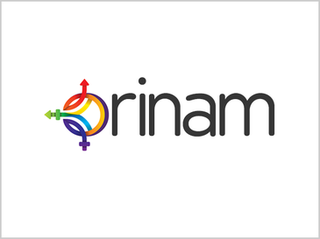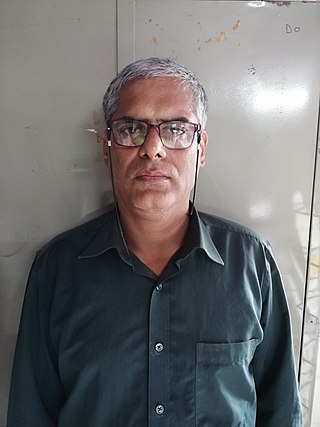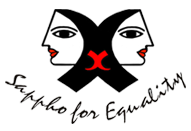Homosexuality in India is socially permitted by most of the traditional native philosophies of the nation, and legal rights continue to be advanced in mainstream politics and regional politics. Homosexual cohabitation is also legally permitted and comes with some legal protections and rights.
Pune Pride is an annual LGBT pride parade that was first held in Pune, Maharashtra on 11 December 2011. It is the second Pride parade to be organized in the state of Maharashtra, after the Queer Azaadi Mumbai Pride March.

India has a long and ancient tradition of culture associated with the LGBTQ community, with many aspects that differ markedly from modern liberal western culture.
Humsafar Trust is an NGO in Mumbai that promotes LGBT rights. Founded by Ashok Row Kavi, Suhail Abbasi, and Sridhar Rangayan in 1994, it is one of the largest and most active of such organisations in India. It provides counselling, advocacy and healthcare to LGBT communities and has helped reduce violence, discrimination and stigma against them. Humsafar Trust is the convenor member of Integrated Network for Sexual Minorities (INFOSEM).
Nazariya: A QueerFeminist Resource Group is a non-profit queer feminist resource group based out of Delhi NCR, India. The group was formed in October 2014, and has since established a South Asian presence. The organization undertakes workshops/seminars, helpline- and case-based counselling, and advocacy to affirm the rights of persons identifying as lesbian and bisexual women, and transgender persons assigned female at birth. Nazariya QFRG also works to inform queer discourse in institutions, and build linkages between queer issues, violence and livelihoods. They focus on the intersectionality between queer, women’s and progressive left movements in India.
Queer Azaadi Mumbai Pride March, also called Queer Azaadi March and Mumbai pride march, is an annual LGBTQIA pride parade that is held in the city of Mumbai, capital of Maharashtra, India. It usually begins from Gowalia Tank ending at Girgaum Chowpatty. It, along with the Pride Week, is organized by Queer Azaadi Mumbai, a collective of organizations and individuals working for the rights of LGBTQIA community. The participants of the march include people from the LGBTQIH community as well their "straight allies", from India and outside. In addition to being a celebration of queer pride, the pride march and related events are a platform to ask for equal rights.
Gaylaxy is an Indian lesbian, gay, bisexual and transgender (LGBT) magazine. The magazine is based in Kolkata.
This is a timeline of notable events in the history of non-heterosexual conforming people of South Asian ancestry, who may identify as LGBTIQGNC, men who have sex with men, or related culturally-specific identities such as Hijra, Aravani, Thirunangaigal, Khwajasara, Kothi, Thirunambigal, Jogappa, Jogatha, or Shiva Shakti. The recorded history traces back at least two millennia.
Chennai has LGBTQIA cultures that are diverse concerning- socio-economic class, gender, and degree of visibility and politicisation. They have historically existed in the margins and surfaced primarily in contexts such as transgender activism and HIV prevention initiatives for men having sex with men (MSM) and trans women (TG).
Bangalore is a multicultural city and has experienced a dramatic social and cultural change with the advent of the liberalization and expansion of the information technology and business process outsourcing industries in India. With much expatriate population in the city, Bangalore is slightly more relaxed.
The city of Shanghai, China, a global center for finance, technology, manufacturing, and transportation, has a presence of LGBT people.
XUKIA is a queer collective based in Assam, India that works for LGBT issues in the region. It is one of the first Queer Collectives to come up in the North East India.
Queerala, a registered community-based Organisation (CBO) for Malayali LGBTIQ people, gives adequate support to Malayali persons who belong to the sexual and gender minorities. Queerala originally started in May 2013 as a secret Facebook page where closeted LGBTQAI+ community members met online. Since its start of operations, Queerala has been an active platform for the rights of the LGBTIQ+ community in Kerala and India and focuses on various awareness campaigns on Sexual Orientation, Gender Identity/Expression, and Sex Characteristics (SOGIESC). Queerala's representatives have been marking its presence, in areas of literature, art, cultural spaces, and academic discourses as well as conducting case studies on issues pertaining to sexual orientation and gender identity. They also focus on sensitization on SOGIESC inclusive healthcare services, educational curriculum, workplace policies and local self-governance.

Orinam is a non-funded, social, and activist collective that works to enhance understanding of alternate sexualities and gender identities among families, communities and society. It was founded in 2003 in Chennai under the name MovenPick and is one of the oldest collective of its kind in India. People affiliated with Orinam are from or trace their ancestry to the following geo-cultural: People of Tamil Origin from Tamil Nadu, India. Orinam provides a platform for creative expression, personal and social commentary by Queer people of Tamil Origin and of Indian Origin primarily. Orinam also acts as a local support group in Chennai for the queer community. Orinam also partners with the city-, state- and national initiatives around decriminalisation of homosexuality by amending Section 377 of the Indian Penal Code and LGBTQ rights.
Betu Singh was a lesbian rights activist, born in an Army family in Kolkata. She set up the Sangini Trust, an NGO based in Delhi under the umbrella of the Naz Foundation, in 1997 to fight for lesbian rights. The NGO works for women attracted to women and individuals dealing with their gender identity, providing emergency response services to LBT individuals facing rights violations. Sangini is the oldest non-governmental organization in India to reach out to LBT persons and one of the few registered lesbian organisations in India.
LABIA is an organization for queer and transgender people in Mumbai, India. It was founded in 1995 as Stree Sangam, and is often cited as a significant organization in the history of LGBTQ organizing in India.
The following list is a partially completed compilation of events considered to have a profound effect on the welfare or image of Tamil sexual minorities. The use of bold typeface indicates that the event is widely considered to be landmark:

Bindumadhav Khire is an LGBTQ+ rights activist from Pune, Maharashtra, India. He runs Samapathik Trust, an NGO which works on LGBTQ+ issues in Pune district. He founded Samapathik Trust in 2002 to cater the men having sex with men (MSM) community in Pune city. He has also written on the issues on sexuality in fictional and non-fictional forms including edited anthologies, plays, short-stories, and informative booklets.



